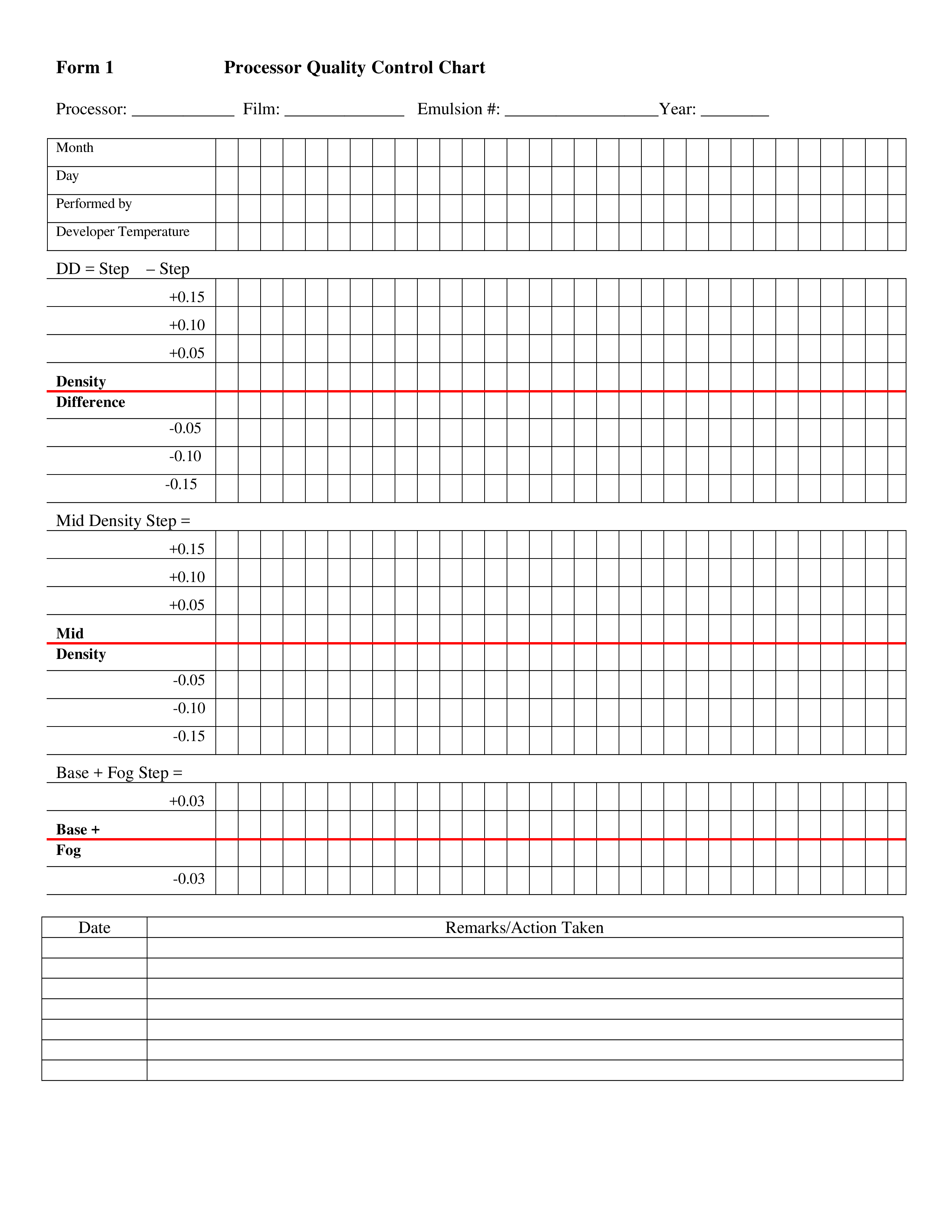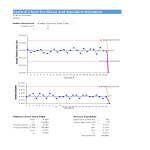Blank Control Chart
Save, fill-In The Blanks, Print, Done!

Download Blank Control Chart
Adobe Acrobat (.pdf)Other languages available:
- This Document Has Been Certified by a Professional
- 100% customizable
- This is a digital download (132.1 kB)
- Language: English
- We recommend downloading this file onto your computer.
How to create a Control Chart? An easy way to start making a visual data analysis is to download this Blank Control Chart template now!
Every day brings new projects, emails, documents, and task lists, and often it is not that different from the work you have done before. Many of our day-to-day tasks are similar to something we have done before. Don't reinvent the wheel every time you start to work on something new!
The Control Charts in this document are very useful and the most common types of control charts, for example the X-Bar chart (which allows you to do plotting the mean of a sample over time). Also you can find the S-chart (plotting the sample standard deviation over time and the R-chart (to do plotting of a range or Max-Min of a sample over time).
These blank control charts are based on the terminology used and that explains the formulas and steps for creating these control charts.
This file contains blank control chart templates that can be used for statistical analysis. For example for Mean and Range, or sample Mean and Standard Deviation (2 worksheets in one). You can just put your your own data in the charts, in order to visualize the data. Control limits are calculated based on the data you enter. In the X-bar & R control chart, the number of observations per sample (n) can be between 2 and 25. In the X-bar & S chart, n must be greater than 4.
Although there are many Statistical Process Control (SPC) software tools available to analyze and visualize data, it happens that researchers also create control charts in Excel or on a hardcopy.
For those, these blank Control Chart Templates can be very useful. Also it can function as educational tools to teach childeren or adults and to make equations.
Instead, we provide this standardized Blank Control Chart template with text and formatting as a starting point to help professionalize the way you are working. If time or quality is of the essence, this ready-made template can help you to save time and to focus on the topics that really matter!
Using this control chart document guarantees you will save time and effort! It comes in Microsoft Office format, is ready to be tailored to your personal needs. Completing your data analysis has never been easier!
Download this Blank Control Chart template now for your own benefit!
Mid-density (MD) Step Average density Density difference (DD) = HD - LD High-Density (HD) Low-density (LD) 17 18 19 20 21 B+F Form 3 Cross-Over Data Sheet Date Performed: Base + Fog Old Emulsion Data New Emulsion Data Old Emulsion New Emulsion MD LD HD Base + Fog MD LD HD Strip 1 Strip 2 Strip 3 Strip 4 Strip 5 Average Density Difference = HD - LD Density Difference = HD – LD DD = DD = Determining Differences Between Old and New Emulsions Base + Fog MD Determining New Operating Level from Old Level and Differences DD Base + Fog New Emulsion Average Difference (New-Old) Old Emulsion Average Old Operating Level Difference (New-Old) New Operating Level (Diff +Old) MD DD Form 2 Laser Film Printer Control Chart Year: ___________ Laser Film Printer: ____________ Film: ________________________ Month Day Initials 0 2.6 2.45 2.3 10 2.25 2.10 1.95 40 1.00 1.15 1.30 90 0.22 0.3 0.38 5 visible in 0 95 visible in 100 Date Remarks/Action Taken Form 5 Quality Control Log - Bimonthly Tests Page _____ of ______ Each time a listed procedure is completed, person performing it must fill in date, their initials and note if equipment passed or failed..
DISCLAIMER
Nothing on this site shall be considered legal advice and no attorney-client relationship is established.
Leave a Reply. If you have any questions or remarks, feel free to post them below.
Related templates
Latest templates
Latest topics
- GDPR Compliance Templates
What do you need to become GDPR compliant? Are you looking for useful GDPR document templates to make you compliant? All these compliance documents will be available to download instantly... - Google Docs Templates
How to create documents in Google Docs? We provide Google Docs compatible template and these are the reasons why it's useful to work with Google Docs... - IT Security Standards Kit
What are IT Security Standards? Check out our collection of this newly updated IT Security Kit Standard templates, including policies, controls, processes, checklists, procedures and other documents. - Letter Format
How to format a letter? Here is a brief overview of common letter formats and templates in USA and UK and get inspirited immediately! - Google Sheets Templates
How to work with Google Sheets templates? Where to download useful Google Sheets templates? Check out our samples here.
cheese


